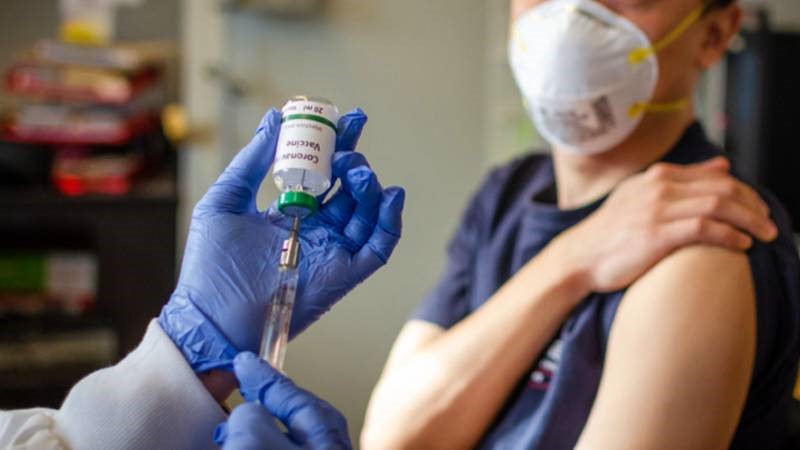
Why Skills-First Leadership Is Replacing the Ivy League Playbook in the C-Suite
The old prestige pyramid—where Ivy League degrees and blue-chip consulting backgrounds paved the way to the CEO seat—is cracking.

January 6, 2021: Some people are eagerly waiting to get vaccinated against the virus, while some are unwilling to get into the race. By refusing to get the jab, they divide the population into the vaccinated and not vaccinated people.
In the U.K., one in five say they are unlikely to take the vaccine, according to YouGov research published in November, citing a variety of different reasons.
As a result of the differing views, a debate could start to emerge in 2021.
It’s a tricky subject, but governments are already looking at introducing systems that would enable authorities, and possibly businesses, to tell if a person has had a COVID-19 vaccine or not.
China has launched a health code app that shows whether a person is symptom-free to check into a hotel or use the subway. In Chile, citizens that have recovered from the coronavirus have been issued with “virus-free” certificates.
On December 28, Spain’s Health Minister Salvador Illa said the country would create a registry to show who has refused to be vaccinated and that the database could be shared across Europe.
“The idea of immunity certificates is not new,” Kevin Trilli, chief product officer at identity verification start-up Onfido, told CNBC. “For instance, children who get vaccinations for measles, polio, and other diseases often must show their immunity certificate to register at a new school. Health passports could be a way to help reopen the economy and manage the new normal with a privacy-first approach.”
U.K. regulators approved the Oxford-AstraZeneca vaccine on December 30. There are now two safe vaccines available to British citizens.
But millions of people across the country don’t want to be vaccinated, according to opinion polls.
Some fear needles, some believe in unsubstantiated conspiracy theories, and some are worried about potential side effects. Others don’t think getting vaccinated is necessary and would rather risk being catching COVID-19.
Cabinet Office Minister Michael Gove said on December 1 that there are “no plans” to introduce a vaccine passport. The Department of Health and Social Care reiterated the message when contacted by CNBC.

The old prestige pyramid—where Ivy League degrees and blue-chip consulting backgrounds paved the way to the CEO seat—is cracking.

Loud leaders once ruled the boardroom. Charisma was currency. Big talk drove big valuations.

But the CEOs who make history in downturns aren’t the ones with the deepest cuts

Companies invest millions in leadership development, yet many of their best executives leave within a few years. Why?

The most successful business leaders don’t just identify gaps in the market; they anticipate future needs before anyone else.

With technological advancements, shifting consumer expectations, and global interconnectedness, the role of business leaders

The Fort McMurray First Nation Group of Companies is the wholly owned business entity of Fort McMurray 468 First Nation. It was established in 1987 as Christina River Enterprises, and the organization rebranded as FMFN Group in 2021. Providing Construction, Custodial, Petro-Canada Fuel & Convenience Store, and Transportation services to a broad portfolio of customers, the Group of Companies is creating financial stability and prosperity for the Nation.

Maushum Basu is a visionary leader who inspires his team with a clear, compelling purpose. Unafraid to take calculated risks, he understands that growth often stems from change and innovation. His deep commitment to both Airia Brands, Inc.

When speaking with Martin Paquette, one thing is immediately apparent: he’s honest. His transparency is refreshing. While many shy away from such vulnerability, Paquette sees it as a force to reckon with. The incredible emotional intelligence speaks to years of looking within—it’s also what allows him to acknowledge his mistakes gracefully and use them as opportunities to innovate.

Marina Charriere, CEO of Star Drug Testing Services, Star Drug Testing Services (Windsor Park), and First Defence Face Masks go hand in hand. Star is a drug and alcohol testing facility, and First D F M is a face mask company.

Leave us a message
Subscribe
Fill the form our team will contact you
Advertise with us
Fill the form our team will contact you